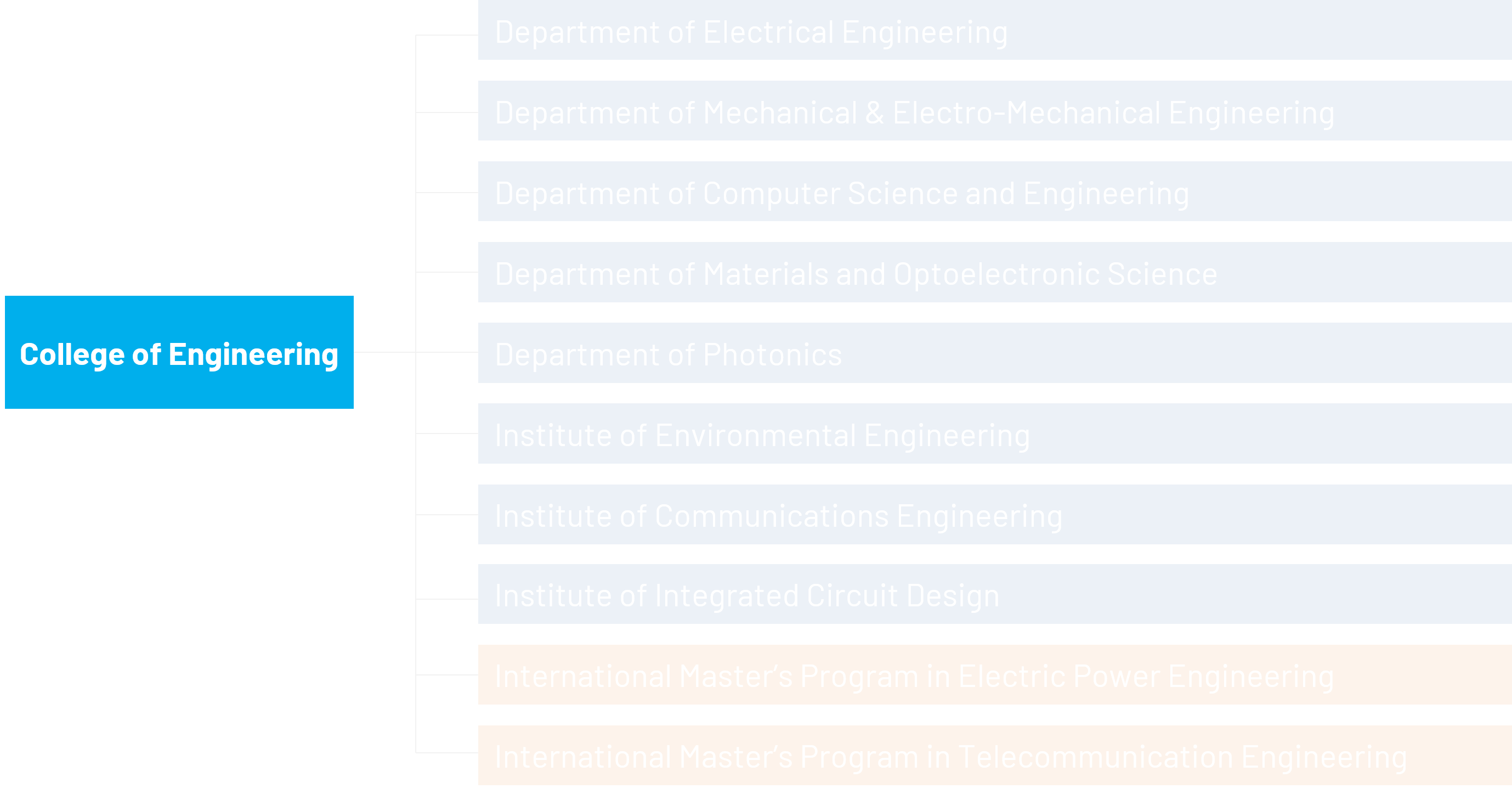OVERVIEW
We are
College of Engineering
1980
CoE was founded
The aims of College of Engineering (CoE) are to nurture hi-tech engineering talent and strengthen research and development. After years of development, the CoE now comprises the Department of Electrical Engineering (EE), Department of Mechanical and Electro-Mechanical Engineering (MEM), Department of Computer Science and Engineering (CSE), Department of Materials and Optoelectronic Science (MOES), Department of Photonics (DOP), Institute of Environmental Engineering (IEE), and Institute of Communications Engineering (ICE), and the newly established Institute of Integrated Circuit Design (IICD). Each department offers bachelor’s, master’s and doctoral programs; however, post-graduate programs are only provided by the institutes. The departments of Electrical Engineering and Mechanical and Electro-Mechanical Engineering recruit about 110 undergraduate students annually. In 2006, the CoE launched an International Master’s Program in Electrical Power Engineering (IMEPE) in response to an invitation from International Cooperation and Development Fund, Ministry of Foreign Affairs. An International Master’s Program in Telecommunication Engineering (IMPTE) was also established in 2014. All the courses in both International Master’s Programs are taught in English to attract international students all over the world.


100+
English-taught courses each semester
In addition, students are encouraged to take elective English-taught courses offered by other colleges.
Farjam's daily life at NSYSU CoE
The current research areas include
Electrical Power and Control
System-on-Chip
Smart Manufacturing
Semiconductor
Micro and Nanosystems
Information Security
Applied Computer Science and AIoT
Inorganic Materials
Polymer Materials and Optoelectronic Science
Photonic Materials and Components
Optical Communication and Optical Information
Display and Alternative Energy
Pollution Prevention
Energy Technology and Environmental Engineering
Communication system technology and Radio wave and wireless communication applications
Our Objectives
Cultivate artistic, moral, creative, well-rounded, and sophisticated engineering talents to meet the challenges of our time.
Creative Development
Technology Integration
Character Development
Knowledge Acquisition
Cultivate Latent Talent
International Ascendance
Idea Incubation
Knowledge Dissemination
In 2025
130
Faculty Members
64
Full Professors
38
Associate Professors
24
Assistant Professors
1
Instructor
3
Non Tenure-track Faculty
37
Staff
1
Secretary
28
Administrative Officers
8
Technical Specialists
3,473
Students
1,665
Undergraduate students
1,596
Masters students
212
Ph.D. students
Timeline










